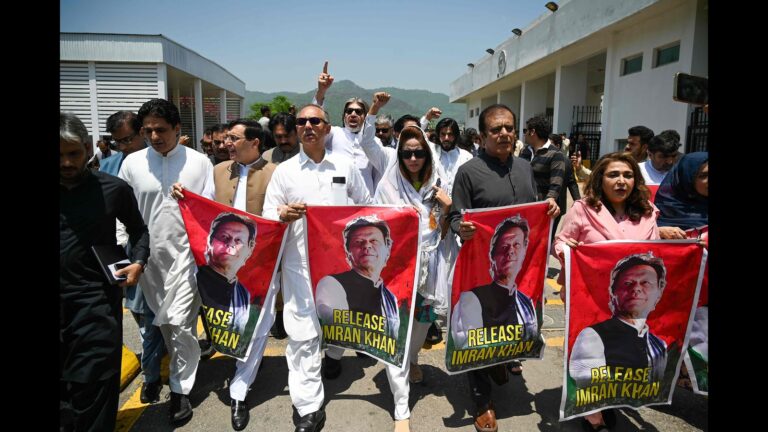In Pakistan’s general elections earlier this year, the overwhelming vote and the bitterly divisive results that followed saw almost all of the country’s institutions, especially the military, sucked into a metaphorical black hole. While traditional politicians such as Nawaz Sharif, Asif Ali Zardari and Molana Fazal felt that they were being pushed out of politics, on the intervening night of February 8 and 9, the country’s always dominant establishment, the military, felt overwhelmed.
Imran Khan’s Pakistan Tehreek-e-Insaf (PTI) was confident of victory for his coalition, despite its leaders being in jail, but a stunning military blunder turned the tide of the coalition’s victory the next day.
The election administrators, the caretaker government handpicked by the generals and the Election Commission (EC) were apparently coerced and quickly became stooges of the military, carrying out orders from the army headquarters in Rawalpindi and the Abupara headquarters in Islamabad.
This has ignited a political storm involving Parliament, the judiciary, the military and the Inter-Services Intelligence (ISI), leaving voters staring at uncertainty and the world wondering what on earth happened.
The victorious party leader kicked everyone out of jail with over 200 baseless cases against him. Most of the cases against him were dismissed even by compromised courts as they had no basis or substance. Asif Ali Zardari, the Sharif brothers and others who lost the elections came to power positions like Prime Minister, Governors and Chief Ministers of key Punjab provinces but they knew that more powerful people were pulling their strings.
Khyber Pakhtunkhwa was the only province where the PTI appointed a prime minister. The army was unable to fight the heavily armed, Afghan-backed Pashtun forces. The crackdown on PTI supporters elsewhere isolated the PTI. The judiciary was ordered not to hear any meaningful cases that could upset the unequal balance of power.
Over the course of a few months, other institutions began to wake up to what was happening, and the world began to take notice. The US came a long way from the State Department’s weak statements immediately after the vote. Parliament passed a resolution by a majority of 368-7 calling for an investigation into the February elections. The UN also issued a damning report, and the UN Secretary-General called on Pakistan to let reason prevail.
These reactions have spurred action ever since. Nothing the Pakistan Army planned bore fruit. It now seems to have realised that the judiciary may be the army’s next target after Parliament was trampled. The army used all available means. PTI activists were arrested, forced into submission, some were killed. Yet the party did not collapse. Thousands of soldiers who should have been guarding the borders were deployed against innocent civilians to force submission. The heads of key agencies like the Election Commission, ISI, Federal Investigation Agency and judges were lured to go along with the script with offers of term extension.
But all this brought the country closer to real change, fanning the winds of resistance and rebellion against the status quo. Imran Khan, who was not taken seriously until a few years ago, showed the mettle of a true revolutionary and endeared himself to the masses. His tenacity led to him gaining confidence in other key institutions, most importantly the judiciary. Many within the Brotherhood began refusing to take dictation in public. Even Supreme Court judges spoke out against the Chief Justice in court cases. The Islamabad High Court unanimously rejected orders by the ISI and the army to act against Khan.
All this has failed and now the establishment is trying to ban the PTI. But the battle is much bigger and a tipping point has arrived. Institutions are fighting for supremacy and the people, cornered by rising inflation and never-ending corruption, are crying out for change.
If enough judges muster the courage necessary to undo the plan to defeat the regime by giving undeserved seats to the defeated and amending the constitution, Pakistan will finally bury the principle of necessity, the theory that has always saved its military. There are all signs that the army is losing the battle, reports are circulating of discord among the top generals, and under a military-led regime the economy is plummeting with little hope of recovery.
Shaheen Sehbai is former group editor of The News International and head of TV channel ARY World. Views expressed are personal.

